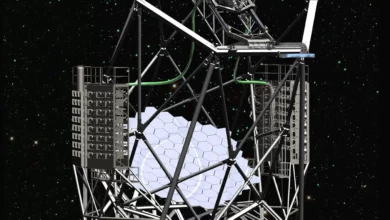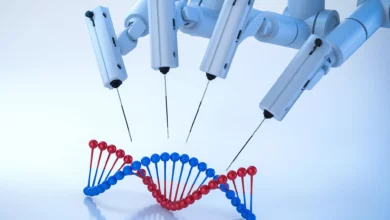Latest Articles
-
Feb- 2023 -24 FebruaryBiomedical Engineering

Why Do We Remember Emotional Events Better? Columbia Neuroscientists Identify Specific Neural Mechanism Responsible
Lead Image: People tend to remember emotional events more vividly and for longer periods of time compared to neutral events. This is why people often remember significant emotional events, such as a wedding or a traumatic experience, for many years. This heightened memory recall for emotional events can be both a blessing and a curse, as it can bring back powerful memories and emotions, but also lead to the persistence of traumatic memories. Neuroscientists at Columbia Engineering have discovered a specific neural mechanism in the human brain that tags information with emotional associations for enhanced memory. Many individuals recall emotional…
Read More » -
24 FebruaryBiomedical Engineering

Revolutionizing Mechanobiology: New Electromagnetic Device Sets New Standard for Tissue Testing
Illustration of an instrument for tensile testing of soft biological tissues that is based on the interaction between an electromagnet and a ferromagnetic bead. A buoyant element between the tissue and the bead provides mechanical stability during testing. Characterizing the biomechanical properties of living tissue with high fidelity will help elucidate changes in their function during organ development, physiology, and disease. Credit: BioHues Digital According to researchers, a groundbreaking electromagnetic device has set a new benchmark for precision in the field of mechanobiology. This device, which enables accurate measurement of a variety of soft biological tissues, makes it possible to…
Read More » -
20 FebruaryHealth

A New Potential Approach to Treating Lupus
Lupus is a chronic autoimmune disease in which the body’s immune system attacks its own healthy tissues and organs. This results in inflammation and damage to various parts of the body, including the skin, joints, kidneys, heart, lungs, brain, and blood cells. Targeting iron metabolism in immune system cells could be a potential new approach for treating systemic lupus erythematosus (SLE), the most prevalent form of the chronic autoimmune disease lupus. Researchers from Vanderbilt University Medical Center recently published their findings in the journal Science Immunology, revealing that by blocking an iron uptake receptor, disease pathology is reduced and the…
Read More » -
17 FebruaryAstronomy

Dark Energy Experiment Reveals Galaxy Gold Mine in First Large Survey
Lead Image: Illustration showing the Hobby-Eberly Telescope and VIRUS spectrograph pairs mounted on either side of the telescope. Credit: McDonald Observatory/HETDEX Collaboration Texas Advanced Computing Center (TACC) systems support catalog release of over 200,000 new star and galaxy locations. Astronomers have barely scratched the surface of mapping the nearly endless stars and galaxies of the heavens. Using supercomputers and the help of thousands of citizen scientists around the world, researchers with The University of Texas at Austin have now revealed the locations of more than 200,000 new astronomical objects. Their goal is to map even more and use that knowledge…
Read More » -
16 FebruaryDNA

Accelerating Prime Editing: Machine Learning Helps Design the Best Fix for a Given Genetic Flaw
Lead Image: A new study published in the journal Nature Biotechnology has used machine learning to accelerate the development of prime editing, a promising gene-editing technology. The study analyzed thousands of DNA sequences introduced into the genome using prime editors, and used the data to train a machine learning algorithm to design the best fix for a given genetic flaw. By using machine learning to streamline the process of designing genetic fixes, this research could help speed up efforts to bring prime editing into clinical use. Researchers at the Wellcome Sanger Institute have developed a new tool to predict the…
Read More »










